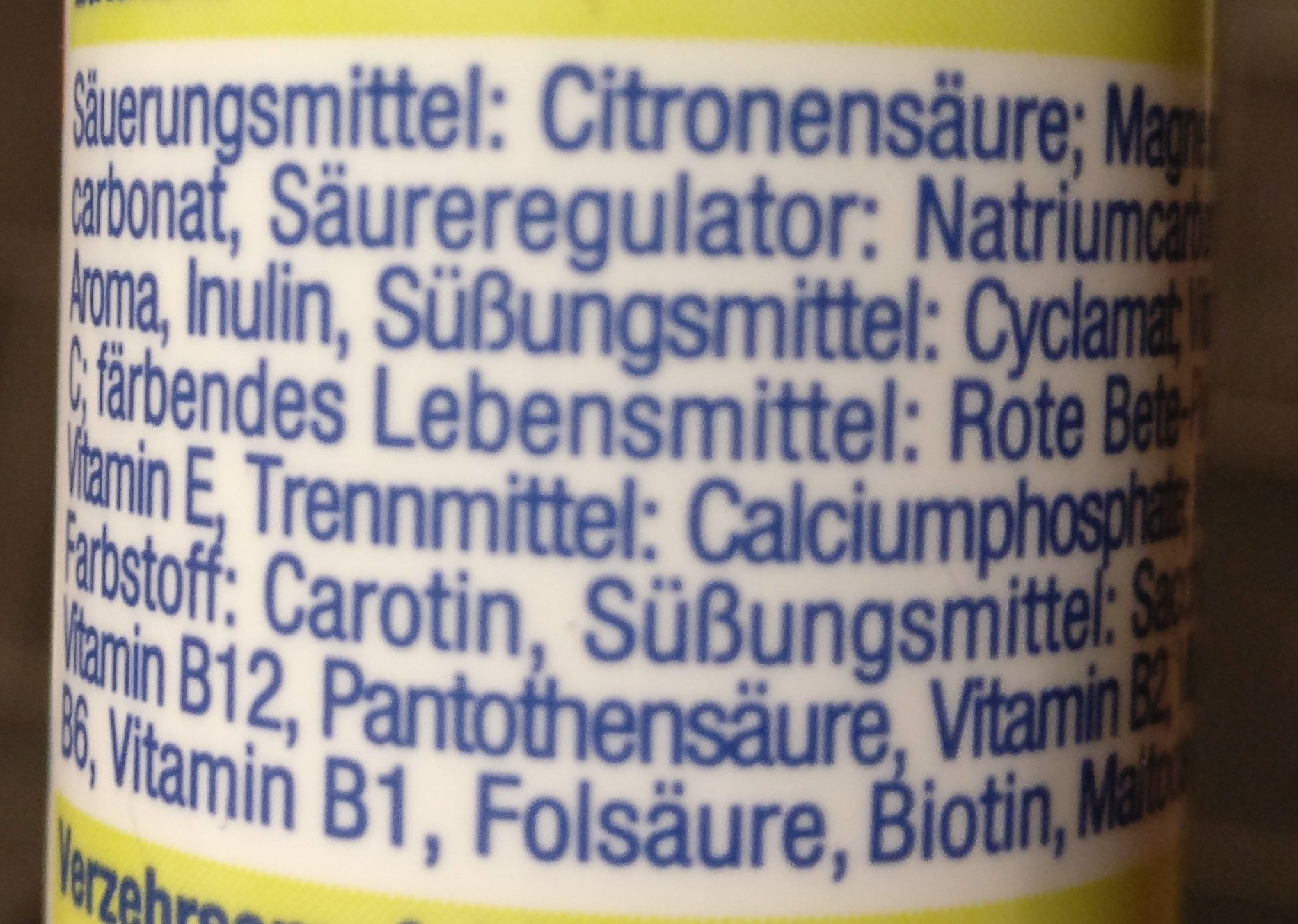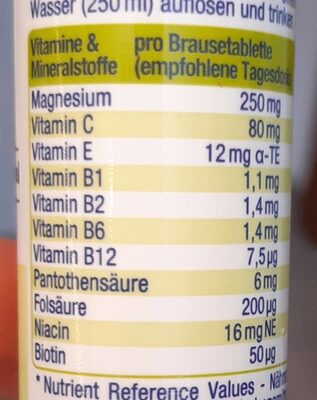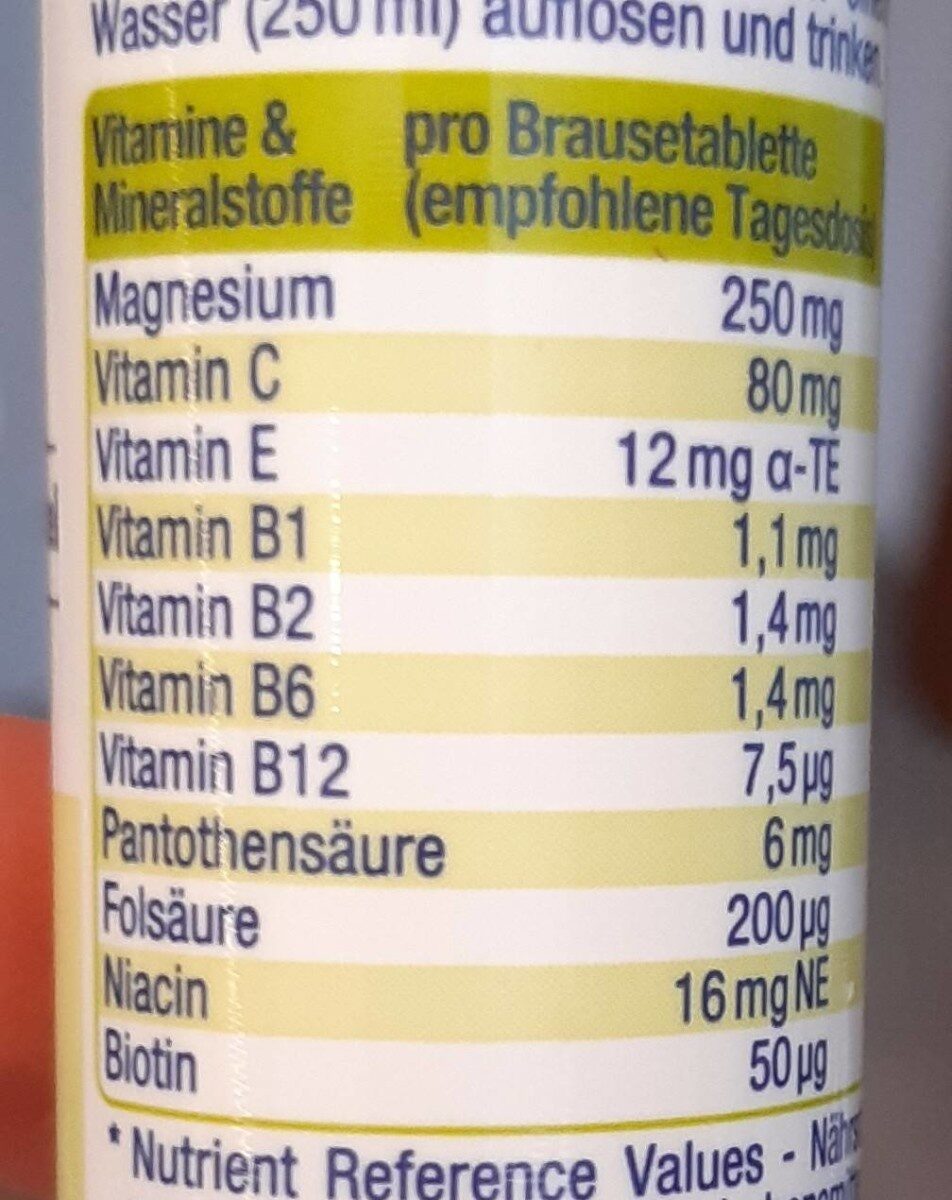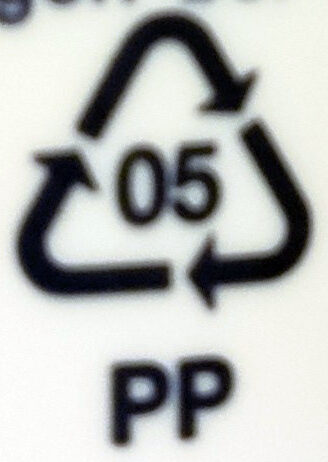Vivede Magnesium + B Komplex, Vitamin C und E - elkos - 102 g (17 x 6,0 g)
This product page is not complete. You can help to complete it by editing it and adding more data from the photos we have, or by taking more photos using the app for Android or iPhone/iPad. Thank you!
×
Barcode: 4311501631294 (EAN / EAN-13)
Common name: Nahrungsergänzungsmittel mit Süßungsmitteln. Mit Magnesium und Mineralstoffen.
Quantity: 102 g (17 x 6,0 g)
Packaging: Plastic, Can, Lid, Pp-polypropylene, de:Röhre
Categories: Dietary supplements, de:Brausetabletten
Labels, certifications, awards: No gluten, No added sugar, No lactose
Manufacturing or processing places: Deutschland
Countries where sold: Germany
Matching with your preferences
Report a problem
Data sources
Product added on by deusfigendi
Last edit of product page on by worldtest.
Product page also edited by aismaili, algazerah, ecoscore-impact-estimator, kiliweb, openfoodfacts-contributors, packbot, prepperapp, roboto-app, yuka.sY2b0xO6T85zoF3NwEKvlhNpcOP4-zSaBTvfmh2Pn8yEIJzPc4lW8pLBIqg, yuka.sY2b0xO6T85zoF3NwEKvlm5Od8qE_W_NDkH6hXeHmd6yKqPocOpy06H1FKs, yuka.sY2b0xO6T85zoF3NwEKvlmJAdPTTmSrtCCXgg0yqxfuVE4LqPch7zLDEPas.











